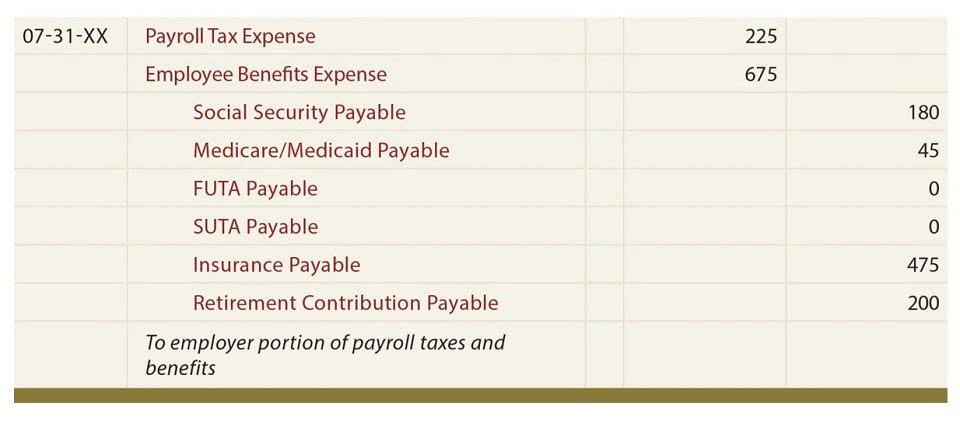
You may make your request for abatement of interest on FTB Form 3701, Request for Abatement of Interest. If this happens to you, please write to us and tell us why you think we made an error. If we agree with you, then we will send a release stating that the lien was filed in error. We are in error if we issue the levy prematurely and do not follow our administrative procedures. We are also in error if you have an installment agreement in good standing with us to satisfy the tax liability for which we are issuing the levy, unless the levy is allowed by agreement.

Amending State Returns: Complete Guide to Correcting State Tax Returns

See details about Atomic, in their Form CRS, Form ADV Part 2A and Privacy Policy. See details about Atomic Brokerage in their Form CRS, General Disclosures, fee schedule, and FINRA’s BrokerCheck. Taxpayers can be sure that Oil And Gas Accounting the CRA will treat them impartially, and that they will receive the benefits, credits, and refunds to which they are entitled, and to pay no more or no less than what is required by law. Taxpayers can choose a person to represent them and obtain advice about their tax and benefit affairs.

Role of the Alabama Department of Revenue and the Taxpayer During an Audit

Certain exceptions, set out in legislation to guarantee these rights, are applicable to frivolous appeals to the courts, or where collection is clearly in jeopardy. NerdWallet has engaged Atomic Invest LLC (“Atomic”), an SEC-registered investment adviser, to bring you the opportunity to open investment advisory accounts (Automated Investing Account and/or Treasury Account) with Atomic. NerdWallet receives compensation of up to 0.85% of assets under management annualized, payable monthly, for each referred client who opens an Atomic account and a percentage of free cash interest earned by clients, which creates a conflict of interest. Brokerage services for Atomic are provided by Atomic Brokerage LLC (“Atomic Brokerage”), member of FINRA/SIPC and an affiliate of Atomic, which creates a conflict of interest.
TABOR limits taxation options
- The Bill’s purpose was to protect the tax system’s integrity and protect taxpayers from unreasonable and unfair treatment by the CRA.
- Taxpayers have the right to expect that any information they provide to the IRS will not be disclosed unless authorized by the taxpayer or by law.
- During any examination or conference, you may have an attorney, accountant, or designated agent present.
- Navigating Tax Challenges for Professional Services Firms Professional services firms, encompassing law practices, accounting agencies,…
- It also reports annually to Parliament on its administration of the Privacy Act.Footnote 140 Both of these reports are well-established reports and are a requirement of many departments within the Government of Canada.
- The relationship between you and the IRS isn’t as imbalanced as it often feels.
We must tell you why we ask for your income tax information and to whom we may provide it. You also have the right to question the accuracy of the information contained within your file. If your spouse/RDP underreported or underpaid the tax due on your joint tax return, and you had no knowledge of it, we may not hold you responsible for payment of the deficiency. If you are divorced, legally separated, terminated your registered domestic partnership, or no longer living with your spouse/RDP, then you may be able to limit your liability for a joint deficiency or underpayment if you qualify for innocent spouse relief.
None of this mandatory training addresses taxpayer rights with the exception that the courses on the Code of integrity and professional conduct and security awareness indirectly touch on elements of taxpayer rights, such as professionalism, privacy, and integrity. This statement explains the existence of the right and explains when one may be entitled to an appeal or formal review. However, it does not explain how the auditor can ensure they respect this right, for example by informing them of this taxpayer bill of rights right. We also examined whether, and if so, how and to what extent, the CRA makes taxpayers aware of their rights, and incorporates and upholds those rights in its daily activities and interactions with taxpayers.
- The Advocate or designee will review your case and, if appropriate, postpone enforcement action while the case is under review.
- The CRA’s mission, vision, promise and values should build upon the foundation of the values in the rights in the Taxpayer Bill of Rights.
- If you are uncertain, complete research that is appropriate to your audit time frame.” This identifies the need to provide accurate information and balance the importance of timeliness.
- Refunds and adjustments must be made if an investigation into the complaint shows validity.
- In practice, however, the Canada Revenue Agency (“CRA“) performs nearly all of the Minister’s functions in administering the collection of taxes and enforcing Canadian tax laws.
- This means providing easy access to every bit of information the public needs to be aware of through its publications, as well as individual notices and correspondence with taxpayers.
- People are often under the impression that it is an absolute power, an organization that makes income tax filing intentionally complicated and offers no recourse for you if something goes wrong.
- Taxpayers also have the right to demand that an assessment be changed if it goes against tax law or was made in error.
- The lien will not be filed or recorded if, within 30 days, you prove that such filing or recording would be in error.
- Taxpayers have the right to know when the department has finished an audit as well as the maximum amount of time they have to challenge the department’s position.
- The Code is lacking an articulation of taxpayer rights as an obligation each employee must uphold, not simply a set of principles “Canadians can expect,” but may or may not receive.
- Navigating the complexities of taxation, including finance, tax deductions, and understanding when to apply for…
- The IRS expects employees to understand and apply taxpayer rights throughout every encounter with taxpayers.
There is no single reference point for a taxpayer to see whether and how the CRA is upholding the taxpayer rights outlined in the Taxpayer Bill of Rights. While we understand the importance of ensuring information is provided to employees in easily digestible amounts, it is important that information on rights is sufficiently detailed and nuanced to provide employees with clear direction on how to operationalize them in their daily work. In addition, for taxpayer right 6, “You have the right to complete, accurate, clear, and timely information,” the course indicates “when a taxpayer or registrant asks you a tax question related to the http://marcsteyaert.be/sample-bank-statement-easy-to-read-example/ audit, provide an accurate answer. If you are uncertain, complete research that is appropriate to your audit time frame.” This identifies the need to provide accurate information and balance the importance of timeliness. At the end of the “Objections and Appeals” chapter, the auditor is directed to “Other references and related topics” and hyperlinks to the Taxpayer Bill of Rights and chapter 3 are provided. Given what little information is in chapter 3 on the right to objection or appeal (as noted above), the ITAM does not place appropriate importance on the right to a formal review and appeal.

No responses yet